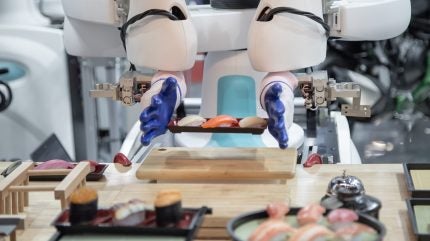
Food technology company Appetronix has secured more than $10m in total financing, including an additional $6m from a seed-plus round.
The latest funding was led by Jim Grote, the Grote family and AlleyCorp, marking AlleyCorp’s third investment in the business.

Discover B2B Marketing That Performs
Combine business intelligence and editorial excellence to reach engaged professionals across 36 leading media platforms.
The fresh capital will speed up its go-to-market activity and support the roll-out of multiple purpose-built robotic kitchen concepts intended for a variety of cuisine styles and formats.
Appetronix plans to tailor each concept to meet the operational demands typical of high-traffic institutional environments.
It intends to use the funds to develop and deploy several robotic kitchen models, with an initial focus on non-commercial, high-footfall venues.
Targets include airports, hospitals, entertainment sites, universities, office towers and other institutional locations where reliable quality and operational efficiency are critical.

US Tariffs are shifting - will you react or anticipate?
Don’t let policy changes catch you off guard. Stay proactive with real-time data and expert analysis.
By GlobalDataAppetronix CEO Nipun Sharma stated: “This investment validates our vision of bringing the best-in-class food experiences to environments that have traditionally been underserved.”
The company is already operating through a partnership with Donatos, a premium pizza chain that has more than 460 outlets across 29 US states.
The collaboration has resulted in the launch of a robot-operated fully autonomous pizza restaurant in June 2025 at John Glenn Columbus International Airport.
Appetronix states that the collaboration has outperformed initial expectations.
The company positions its robotic kitchen systems as solutions to the operational pain points of the foodservice sector that continues to contend with various challenges. These include labour shortages, inconsistent product quality and the demand for extended service hours in non-traditional venues.





